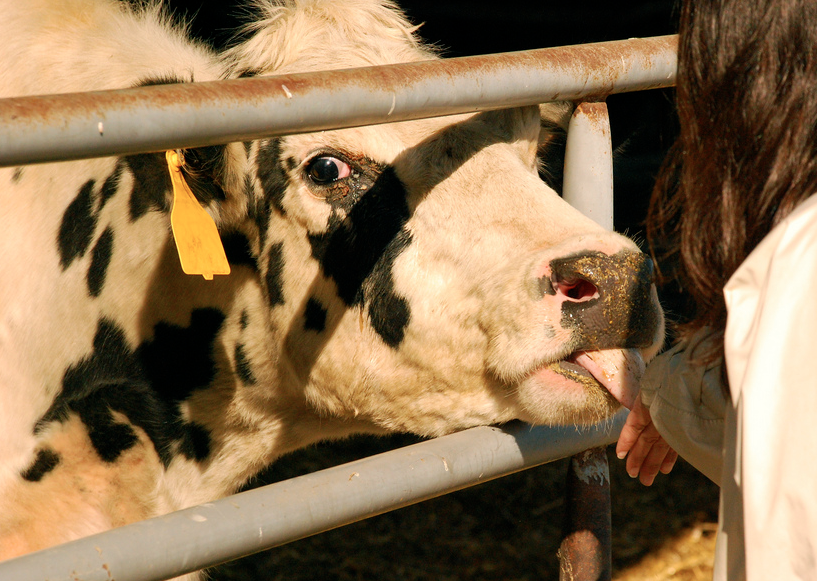FDA Politely Asks Drug Companies To Voluntarily Stop Providing Antibiotics For Animal Feed

Your hand tastes nice, but it could use a twist of amoxicillin… (afagen)
After an inexplicably long delay, the FDA finally released its final guidance for industry [PDF] today, in which it sets forth completely voluntary guidelines for how drug companies could phase out the sale of medically unnecessary antibiotics for the sole purpose of encouraging growth in farm animals.
While the FDA says it is “concerned about the risk that antimicrobial resistance poses to public health from the use of medically important antimicrobial drugs in food-producing animals for production purposes,” and it has the authority to halt this practice, the agency instead chose to leave this matter in the hands of a pharmaceutical industry that makes a huge profit on these drugs, with around 80% of antibiotics in sold in the U.S. going into the feed and water of pigs, cows, and chickens (and then into consumers who eat those animals).
“FDA believes a voluntary approach, conducted in a cooperative and timely manner, is the most effective approach to achieve the common goal of more judicious use of medically important antimicrobials in animal agriculture,” reads the guidance. “FDA will be working with affected drug sponsors who wish to voluntarily withdraw approved production uses of their medically important antimicrobial new animal drugs and combination new animal drug products.”
The guidance wasn’t issued to convince the drug companies to stop the sales, but “to facilitate the voluntary process by providing useful information for sponsors intending to revise their approved labeling through a supplemental new animal drug application.”
So it’s not urging the companies to stop selling these drugs, it’s asking the companies to change the reasons for which it sells the antibiotics.
As Avinash Kar of the Natural Resources Defense Council points out, this guidance does nothing to actually urge drug companies to end these sales:
Even if the drug manufacturers stopped selling antibiotics to speed up growth, they could continue to sell them for a very similar use: to prevent diseases associated with crowded and stressful conditions on many livestock facilities. Not only is the use very similar in nature—low doses added to the feed of a large number of animals day after day—many of the antibiotics are approved for both kinds of uses.
The FDA guidance does try to preempt the expected shifting of antibiotics from production use to “therapeutic” use by putting veterinarians in charge of when farm animals will need the drugs, but Caroline Smith DeWaal, Food Safety Director for the Center for Science in the Public interest notes that there are loopholes in the guidance that could undermine the intention of the guidance.
“For example, the proposed regulation would give states an increased role in defining the veterinary oversight through their licensing and practice requirements, though some states don’t have adequate laws regarding veterinary practices,” writes DeWaal.
NRDC’s Kar also notes that this guidance just further delays any meaningful regulatory action on the issue, as the FDA now has three years to evaluate the program before deciding whether it needs to issue binding rules on antibiotics in animal feed.
By that point, at least another 6 million Americans will have gotten sick from antibiotic-resistant pathogens. And that’s assuming the FDA actually follows that three-year timeline. The agency only issued its draft guidance on this topic after the NRDC, CSPI and others filed suit against the agency in 2012 for not making good on the 1977 proposal to investigate the use of antibiotics in animal feed.
The agency says it will do a 90-day checkup on the progress of the voluntary program “to provide an indicator of the level of engagement of affected drug sponsors in the voluntary process.” You’ll forgive us if we don’t expect to hear much good news at that point.
Want more consumer news? Visit our parent organization, Consumer Reports, for the latest on scams, recalls, and other consumer issues.

